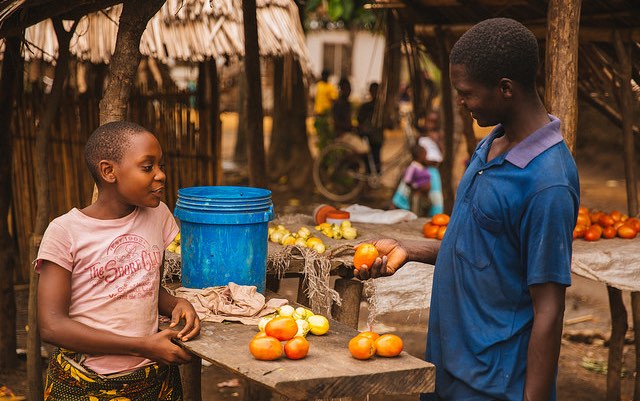Twenty-five years after the United Nations first declared Oct. 17 as the International Day for the Eradication of Poverty, the report card on progress in meeting Sustainable Development Goal 1, “End poverty in all its forms everywhere,” presents a mixed picture. While there is considerable success in reducing the number of those who live in extreme poverty (earning less than $ 1.90 a day) globally, the decline in poverty rates has slowed, as per World Bank’s latest estimates. This deceleration not only threatens the progress made in previous years, but may put meeting the 2030 deadline for poverty elimination at serious risk.
Agriculture lies at the heart of any developing country poverty reduction strategy, IFPRI’s Senior Research Fellow, Will Martin, says in a co-authored editorial in World Development, “Agriculture, Structural Transformation and Poverty Reduction: Eight New Insights.” Despite the agro-pessimism of the 1990s and 2000s, a period during which policymakers paid scant attention to agriculture and agri-investment policies, the food price spikes of 2008 underlined the need to do more to strengthen agriculture in developing countries.
In fact, agriculture itself holds the key to economic transformation, food security and nutrition, Peking University’s Justin Yifu Lin writes in an IFPRI guest blog Lin cites the example of China, where per capita GDP grew from $155 to $8,123 between 1978 and 2016 (in current USD) thanks largely to agricultural transformation. This rapid growth has driven a dramatic decline in China’s extreme poverty rate from 88.3 percent in 1981 to less than one percent in 2015.
In an interlinked global economy, no country is insulated from setbacks and disruptions to global trade. National development strategies alone won’t determine a country’s success in ending poverty; the effort also depends on broader international trade and governance structures, which bring efficiencies. IFPRI’s 2018 Global Food Policy Report examines the risks of rising anti-globalization policies, and how rolling back global integration could harm the livelihoods of millions of poor people in the developing world.
Poverty reduction efforts must also confront the expanding impacts of climate change on food production. The poor will bear most of this burden; in Bangladesh, for example, many will be forced to migrate from their homes in search of new livelihoods (the subject of upcoming work by IFPRI researcher Valerie Mueller). Whether undertaken in search of better livelihood or to support families remaining behind, migration typically leads to unhappiness and often despair among migrants, who report feeling less calm, unhappy and unhealthy, IFPRI Senior Research Fellow Katrina Kosec finds in her paper, “Moving to Despair? Migration and Well-Being in Pakistan,” co-authored with Mueller and Joyce Chen of the University of Ohio.
IFPRI research has also questioned some of the common myths around women, poverty, and agriculture—that 70 percent of women are poor, they produce 60-80 percent of food, own less than 1 percent of land, and that women are better stewards of environment. The persistence of these myths hampers the development of effective poverty reducing strategies, IFPRI researchers Ruth Meinzen-Dick, Agnes Quisumbing, and Sophie Theis write in their paper, “Women in Agriculture: Four myths.”
IFPRI’s evidence-based policy research provides solutions to complex problems from raising smallholder farmers’ productivity in countries across Asia, South Asia, and Africa, to modernizing agricultural technologies and improving nutrition—aiming at accelerating progress toward ending poverty and hunger.
The 2018 theme for the day is “coming together with those furthest behind to build an inclusive world of universal respect for human rights and dignity.” To this end, together with the UN Food and Agriculture Organization (FAO) and other key stakeholders, IFPRI will explore more ways to overcome current roadblocks on the path toward ending hunger and malnutrition at the Accelerating the End of Hunger and Malnutrition conference in Bangkok Nov. 28-30.
Smita Aggarwal is an IFPRI Communications Specialist.
Learn about IFPRI’s latest work on poverty with partners including the Bill and Melinda Gates Foundation, Canada, and Japan.







